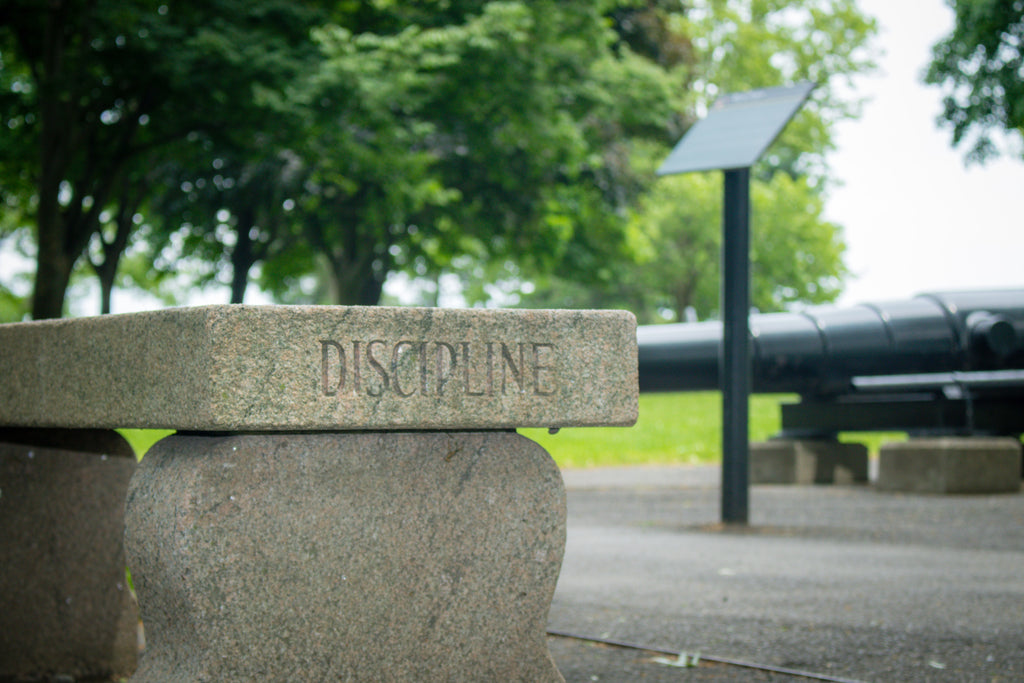You Can’t Divorce Discipline from Success

Discipline is what makes success look easy
Success isn’t some amazing good luck people stumble across. It doesn’t just happen, and it’s often not the result of some special skill or ability. But success requires something important, something that’s available to you, too—discipline.
Discipline is the secret sauce to success; it’s the behind-the-scenes magic that makes success look easy.
And it’s anything but easy.
If you happen to be a working parent, your mornings are probably filled with the pandemonium of childcare, cajoling, spilled coffee, and mad-dashes to school drop-off. (I know mine are!) Then, I spend a full day at work doing whatever it takes to support my team, lead the company, and make a difference. Dinner happens. Family time happens. Cleaning up after the kids go to bed happens. And the next morning, the whole cycle starts again.
This would make anyone feel stressed and overwhelmed. Some days it does! It can be a struggle at times not to wallow, “My life is just too much. I’ll never pull off everything I have to do. I just can’t.” Those are the days when I remind myself that I have the freedom to choose to live a different story. To do that, I choose to activate daily discipline.
Willpower is like a muscle
“Willpower” is often used as another word for the kind of discipline I’m talking about. Psychologists define it as the ability to “delay gratification”—in other words, you do something you don’t want to do now, so that you can get something you want later on.
According to an American Psychological Association survey, the No.1 reason people give for not making healthy lifestyle changes is: “I don’t have enough willpower.” People talk about willpower as though it were something similar to a musical talent or the ability to curl your tongue—you’re either born with it or you’re not. If you don’t have it … oh well, too bad.
It turns out, though, willpower is a little like a muscle: the more you use it, the stronger it gets. Like a muscle, it can also get exhausted, so you need to take care of it. It uses a part of your brain, scientists say, that has to be replenished the same way the rest of your body does—with sleep and healthy foods. When you have to use all your powers of self-discipline in one particular area of your life over a long period of time, you may find it harder to control yourself in other areas of your life. For example, in one study, people who were asked to control their emotions were more likely to spend money on unnecessary items, while other who were told to resist sweets tended to procrastinate more.
Scientists have also found that certain activities can drain a person’s willpower, such as sitting through a boring meeting while resisting the urge to fidget or doodle or yawn. According to some researchers, resisting the urge to check our phones, e-mail, or social media accounts is another constant factor that depletes modern-day willpower. The human brain was not set up to deal with all the immediate gratification that’s offered online.
Quick hacks to strengthen willpower
The good news, though, is that there are tricks to help you strengthen your willpower. (It’s a little bit like distracting your inner toddler.) Here are a few I’ve come across that usually work for me:
- Find something that puts you in a good mood. Scientists asked a group of people to use up their willpower by resisting a particular temptation. After that, half the group received unexpected gifts or watched a funny video (things likely to put them in a good mood). The other half of the group simply rested during the same period of time. Compared to people who just rested for a brief period, those whose moods were improved did significantly better in resisting another set of temptations.
- Clench your muscles. Studies say that exercising control over any body part causes you to become more disciplined in other facets of life. You could clench your fist, squeeze your eyes shut or tighten your calf muscles
- Meditate. We all know that meditation is great for a lot of things (like managing stress and increasing mental focus), but some recent research indicates that even a short period of meditation can help build willpower.
- Don’t let yourself get hungry. When we’re hungry, our blood sugar drops, and when our blood sugar levels are low, scientists have found that we have less willpower. Don’t just grab a candy bar, though, which will make your blood sugar spike and then plummet. You need to eat the right kinds of food—plenty of protein, complex carbohydrates, and healthy fats—to keep your blood sugar steady.
-
Distract yourself. Sometimes willpower isn’t about forcing yourself to do something; it’s not allowing yourself to take the easy path. Distraction can help with this type of willpower struggle. Just put a timer on and do anything else for 20 minutes. This is often how long a craving sticks around. After 20 minutes, you might be ready to move on from whatever was causing you to want the cookie, the drink or to skip the dishes in favor of Netflix.
John Pierpont said, “The first step towards getting somewhere is to decide you’re not going to stay where you are.” It takes discipline every single day for any successful person to get out of bed and do all the things that need doing in a busy day. Most people, if given the chance, would rather sleep in than do all the things it takes for a successful day.
That’s one of the features of discipline: it’s something you do over and over, day after day. You slip up some days. And then you get right back to it the next day and the day after that, deciding morning after morning how you want to live that day.
Make It Personal
On a scale of 1 to 10 (1 being next to nothing, and 10 being lots and lots), how would you rate yourself when it comes to how much discipline (or willpower) you have?
Are there some areas of your life where you would rate yourself higher in terms of discipline? (For example, maybe you’re good at exercising but not so good at saying no to junk food. Or you’re terrible at turning the television off at night, but you jump out of bed every morning for your meditation time.) Make a list under each of these two headings:
DISCIPLINE SUCCESSES DISCIPLINE CHALLENGES
Now look at these two lists and ask yourself: Why is discipline easier in some situations than in others? What makes the difference?
Now ask yourself: Can I use these insights to move at least one item from the “challenges” column into the “successes” column? If so, which ones and why?
Next, take some time to think about this: Is a physical reason—tiredness, lack of sleep, or poor diet, for example—making it harder for you to have willpower in certain situations? Which items in your “challenges” list might become easier if you made certain changes in your lifestyle—and what would those changes be?
Over the next month, practice using discipline to tackle at least one item on your “challenges” list. Write down which behavior you’re going to address with willpower. Describe the changes you will make in your life to help you do so. Notice if it becomes easier or harder as the days go by. (You should expect it to become harder before it comes easier. Like all muscles, the willpower muscle “hurts” when you first start to exercise it!)
Photo credit: "Discipline" bench - Trophy Point at the United States Military Academy at West Point by Dave Lowe
